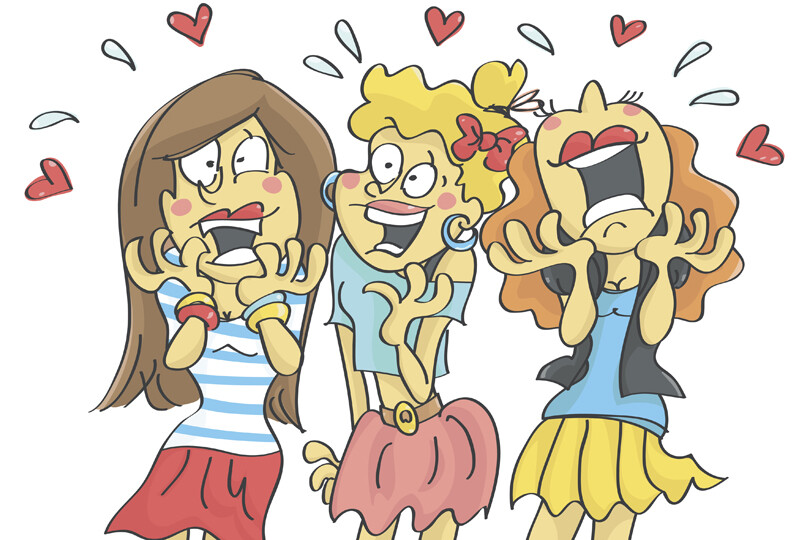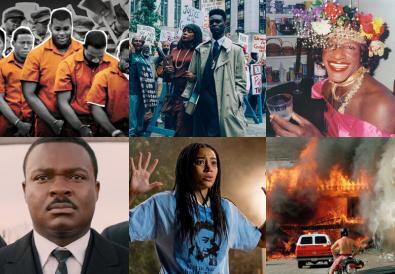Over the past decade, fans have been building communities online to support their favourite artists, but these “safe spaces” can quickly turn toxic when highly dedicated fans take it too far…
In the early 2010s something magical happened when artists like Ariana Grande, Nicki Minaj, Lady Gaga and bands like One Direction broke through at the same time social media was just starting to pop off. This new accessibility, and oversaturation of artists that social media provided gave fans a place to connect with other fans of the same artists. As these small online communities have grown over the past decade, they have become a really cool place to meet people who have the same similar interests as you. But it can also get really toxic, really fast. A whole other fan subculture emerged that ran much deeper than just listening to an album, wearing a t shirt, or attending a few concerts. The most dedicated fans call themselves “stans”, and stan culture often sucks all of the fun out of places originally built for enjoyment. It pits fandoms against fandoms, and sometimes creates friction within a singular fandom.
Twitter and Instagram have given us access to famous people like we’ve never seen before. Once upon a time social media was just a place for everybody to post what they wanted whether you were famous or not. Twitter became the perfect place for people to show their love and support for their favourite artists. In turn, communities formed, and people were able to connect with others from anywhere in the world that share a common interest. Don’t get me wrong, online fandoms, and stan culture have done incredible things for the artists they love. In some cases, they’ve made or broken careers, but there’s also a much darker side to it that you start to see once you start to dive in.
What is a stan?
The current stan culture certainly belongs to a small group of younger millennials, but it’s mainly comprised of our beloved Gen-Z. Some believe “stan” comes from a combination of the word stalker and fan, but it actually comes from the 2000 Eminem song by the same name. The song is about a devoted fan of the rapper who uses his obsessive admiration to go to extreme lengths to get Eminem’s attention. Stan blames Eminem for not answering his fan mail, which he believes he is owed. Today’s “stan” is just an extremely devoted fan. Somebody that would go to immeasurable lengths for their favourite artists. Within “standoms” there are all kinds of different terms that could fill a dictionary. It’s a whole other world, and they’ve made it clear there is no room for casual fans or “locals” as they call them. The difference today’s stans have that Eminem’s Stan didn’t is accessibility to social media accounts of their favourite celebrities.

These communities that were mostly built by groups of teen girls (no hate to teenage girls. Their power is truly limitless) that claim to be a safe, and welcoming space can get toxic really fast. In a lot of ways, cancel culture goes hand in hand with stan culture. While some people are getting rightfully called out for their actions, sometimes trending topics on Twitter are started when one fandom is mad at another. In past years, various fandoms have been called out for causing drama online, but they’re not the only ones responsible for creating tension. It feels like full blown wars will start over awards, and whose songs are doing better on the charts. Often times its fandom vs. fandom. But sometimes fandoms of one singular band will have sub-fandoms (or different stan groups) for each member of the band. It’s created an environment where there isn’t much room for compromise or conversation. It’s all or nothing, and if they don’t agree with everything you have to say, you can always expect some nasty replies. If you say something truly out of pocket you get a death threat or two. Through research, I’ve noticed a lot of “stan accounts” operate anonymously, often using fake names and display photos. I can’t blame them; it’s become a scary place disguised as a space where all fans are welcome. People who use anonymous accounts on Twitter have been doxed and outed. Their sense of security, and real lives have been affected from some fun they were having online. There is nothing that stans can’t do with access to high-speed internet and a MacBook. During the peak of their popularity, fans of the British boy band One Direction hacked into an airport security system to watch the band members sit in a lounge as they waited to board a flight.
Aside from fandoms and stan culture absolutely disregarding the privacy of the people they claim to love and respect, they also foster a sense of entitlement within the fandoms. Some fans/stans often talk about feeling that they’re owed content from artists. They believe their content deprivation can be solved by a new selfie, or a never-before-seen photo from the past. Artists don’t owe us anything “extra”. Their job is to entertain us, and they do that with the music they make for us, and anything else we get is a bonus. Furthermore, the people who have liked the artist/band for a longer period of time feel and act superior towards newer fans. When you’re in it, it feels like you constantly feel like you have to prove you deserve to be there. If you’ve missed out on experiences others have been lucky enough to have, your imaginary stan card gets taken away and you get kicked out of the club. All of this is of course absurd, and untrue, meaningless in the grand scheme of things, and barely scrapes the surface of the sad places these nooks of the internet have become.
I think artists are appreciative of any fan they have whether you spend hundreds of dollars on concert tickets and merchandise, or you stream their music for free. Anyone who says they’re a fan is a fan. These online communities which started as safe spaces for fans to bond, have turned into meaningless battlefields that have only become more toxic as time goes on. In a way there have always been hardcore, ride or die fans. Though I’m not sure they have ever been this aggressively defensive. If you ever happen to find yourself in these certain corners of the internet (and I pray you never do) just remember we are all fans of the same person, and I can’t stress enough that none of any of it actually matters.













Very well written!
Very easy to find differences versus celebrating our similarities.
The internet can be.a scary place when this happens.